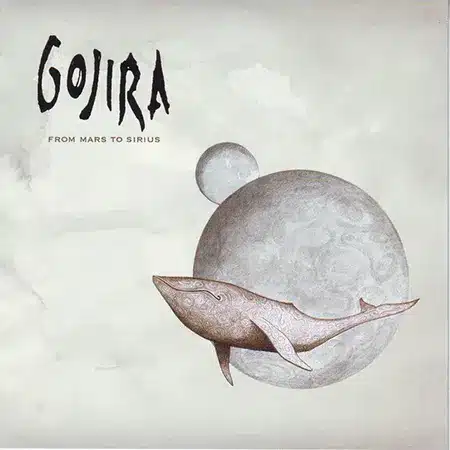Gojira: Masters of Modern Metal with a Progressive Spirit
Origins and Early Years
Gojira, one of the most influential metal bands of the 21st century, was formed in 1996 in Bayonne, France. Initially known as Godzilla, the band was forced to change its name in 2001 due to copyright issues. The group was founded by brothers Joe Duplantier (vocals, guitar) and Mario Duplantier (drums), along with Christian Andreu (lead guitar) and Jean-Michel Labadie (bass). These four musicians have remained a consistent lineup throughout the band’s history, a rare phenomenon in modern metal.
From the beginning, Gojira set out to explore a path that differed from mainstream metal. They combined elements of death metal, thrash, progressive rock, and groove-oriented rhythms. The early demos, released under the name Godzilla, showcased raw energy but also an ambition for complexity and atmosphere that would define their future work.
Their debut album, Terra Incognita (2001), marked a powerful entrance into the French metal scene. It featured aggressive riffs, intricate time signatures, and philosophical lyrics touching on spirituality and existentialism. Though still rough around the edges, Terra Incognita laid the groundwork for the band’s future direction.
The Rise of a New Voice in Metal
Gojira’s second album, The Link (2003), was a significant step forward. It expanded their musical vocabulary with more tribal rhythms, syncopated riffs, and textured songwriting. Songs like “Indians” and “Remembrance” reflected the band’s growing confidence and global concerns, especially regarding ecology and indigenous cultures. The band was already carving out a niche that combined heaviness with intellectual depth.
In 2005, Gojira released From Mars to Sirius, the album that catapulted them into international recognition. With themes revolving around environmentalism, life, death, and cosmic exploration, it fused brutal metal with majestic atmospheres. Songs such as “Flying Whales,” “Ocean Planet,” and “Global Warming” became instant classics. The album’s structure and narrative coherence showcased their affinity with progressive rock, earning comparisons to bands like Mastodon and Tool, though Gojira’s sound remained uniquely their own.
Expanding Horizons
Gojira’s next record, The Way of All Flesh (2008), was darker and more introspective. Addressing mortality and the human experience, it featured a denser, more technical sound. Tracks like “Toxic Garbage Island” continued the environmental focus, while “Vacuity” and “The Art of Dying” showcased their philosophical underpinnings. The album solidified Gojira’s reputation not just as metal innovators but as artists concerned with the fate of the world and the soul.
L’Enfant Sauvage (2012) marked their first release with Roadrunner Records. The album explored themes of freedom, identity, and personal evolution, with the title (translated as “The Wild Child”) evoking images of untamed human nature. Songs like “Explosia,” “The Gift of Guilt,” and “Born in Winter” blended crushing grooves with emotional depth. Gojira’s ability to balance technical prowess with emotional resonance reached new heights.
Maturity and Global Recognition
With Magma (2016), Gojira achieved their most commercially successful album to date. Inspired by the death of the Duplantier brothers’ mother, the record was more melodic and concise than previous works. Joe Duplantier experimented with clean vocals, and the songs had a more streamlined structure. Tracks like “Silvera,” “Stranded,” and “Low Lands” showed that Gojira could innovate without sacrificing their identity. Magma earned them a Grammy nomination and brought them to a much wider audience.
Their most recent album, Fortitude (2021), continues this evolution. Blending groove-metal riffs, progressive structures, and socio-political messages, the album touches on themes like resistance, inner strength, and environmental justice. Songs such as “Amazonia” and “Born for One Thing” exemplify the band’s ability to fuse activism with art. The album was met with critical acclaim and topped charts across Europe and North America.
Musical Style and Legacy
Gojira’s music is characterized by:
- Polyrhythmic complexity and time signature experimentation.
- A seamless blend of brutality and atmosphere.
- Lyrics that address existentialism, ecology, and spiritual awareness.
- Precision drumming by Mario Duplantier, often considered one of the best drummers in metal.
- Use of pick scrapes and layered harmonic textures that contribute to their distinct sound.
Beyond technique, Gojira’s legacy lies in how they’ve challenged the conventions of extreme metal. Rather than resorting to nihilism or shock, they have chosen a path of reflection and activism. Their messages resonate in an age of climate anxiety and social unrest, making them both timeless and timely.
Influence and Cultural Impact
Gojira has inspired a new generation of metal musicians who seek to balance intensity with intellect. They’ve toured with major acts like Metallica, Slayer, and Opeth, and have headlined major festivals like Hellfest and Wacken. Their French origin also breaks barriers in a genre long dominated by Anglophone bands.
They have managed to maintain artistic integrity while expanding globally, a feat that speaks to the universality of their themes and the power of their music. Gojira stands today not only as a metal band but as a philosophical and ecological voice in modern music.





